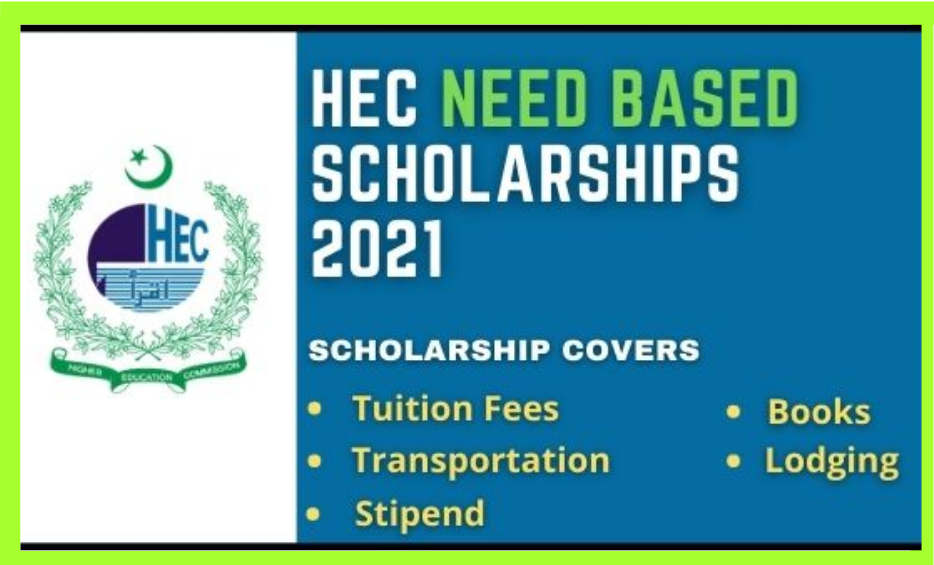The Higher Education Commission (HEC) in Islamabad announced HEC Need-Based Scholarships to undergraduate students enrolled in the country’s 98 universities. HEC Need-based Scholarships are available to students enrolled in undergraduate programmes at public sector institutions and its sub-campuses. Only students who have been admitted on the basis of open merit are eligible to apply. Self-finance students are not eligible to qualify for a HEC need-based scholarship.
There is no shortage of smart young people in Pakistan, but a lack of resources stops them from fulfilling their full potential in many cases. When it comes to higher education, this is especially troublesome. The Pakistani government recognises these limitations and has entrusted the Higher Education Commission with assisting needy and qualified students with need-based scholarships.
The universities announce HEC need-based scholarships. Students must complete the application form found on the HEC website and submit it to their particular university’s Financial Aid office. Students cannot apply to the HEC directly. Universities choose candidates and submit their application forms to HEC.
What does the scholarship cover?
The Needs Based Scholarship program covers funds for the following expenses:
- Tuition Fee
- Stipend (Rs. 6000 per Month)
How to apply for HEC Need Based Scholarship 2022
- All Eligible Students can download the Application form from here.
Download Application Form
- The Scholarship Form will be submitted along with supporting documents to the same Financial Aid office (at university only) after completion. (HEC will not accept any application form directly)
- Students need to secure admission to any one of the approved disciplines at the participating Universities/Institutions as per their admission criteria.
- Please note that this scholarship program also considers partial scholarship for students already enrolled at the selected university/DAI.
- Please note that under this scholarships scheme, the funds are not transferred directly to students by HEC. The payment is made to the students through participating universities/institutions.
Eligibility Criteria for HEC Need Based Scholarship 2022
- Financial assistance & scholarships are available for study at Undergraduate level in all disciplines at HEC selected public sector Pakistani universities and degree awarding institutions.
- Students need to compete for securing admission at the participating institution as per admission policy of the institution and be enrolled in Undergraduate (4 years) programs.
- Students in financial need who are already enrolled in participating institutions are also eligible to apply.
- The eligibility of a candidate is linked to his/her financial needs as assessed by the Institutional Scholarship Award Committee. The financial background of the family of the applicant will be kept in view in this regard.
- The number of slots will be decided by the universities.
- Funding for slots will continue for the complete duration of the program. In case any students drop out, they will be replaced by other candidates on the waiting list.
- All disciplines will be kept open. The selected university will decide whether to include or exclude any discipline keeping in view its grant, program cost, and number of allocated slots, etc.
- In the case of Medicine, Pharm-D and other five year programs, funding will be made available for the complete program.
- Considering the allocated grant, the university may adjust the total number of scholarships to an extent in order to cover the tuition fees.
- In addition to the tuition fee, every grantee will be paid Rs.6000/- stipend per month for the complete program.
- Those students who secure admission on self-finance are not eligible for HEC Need-Based Scholarship Program
Deadline for HEC Need Based Scholarship 2022
The deadline for HEC Need Based Scholarship is varying from university to university(Different from each university)






Need a scholarship
I think i am the most deserving student for this scholarship.
How can i apply for HEC scolorship
This is very good opertunity for poor people .. I really deserved it ..
Good opertunity for poor people .. I really deserved it …
Good opportunity for poor student
This is very helpful for poor students.I am deserving it
I am very poor, I need scholarship very much